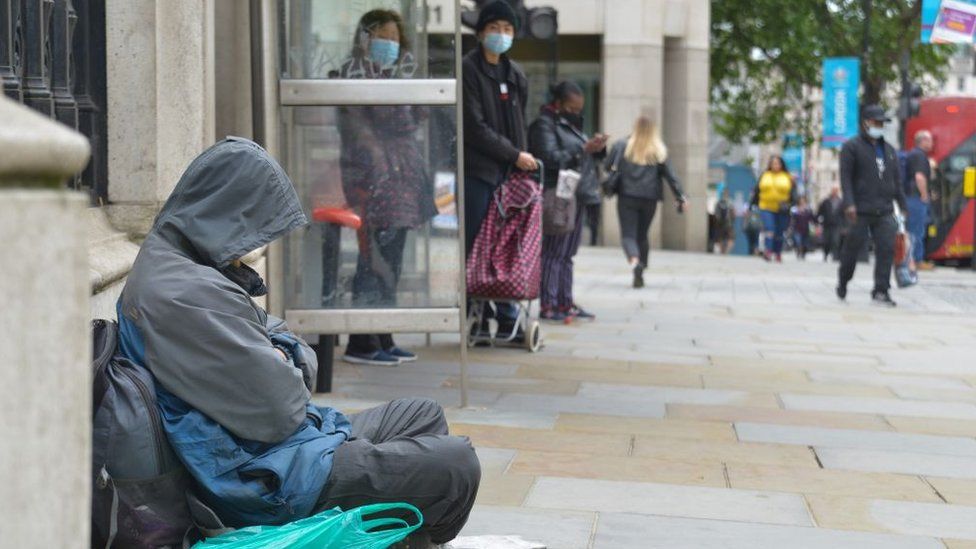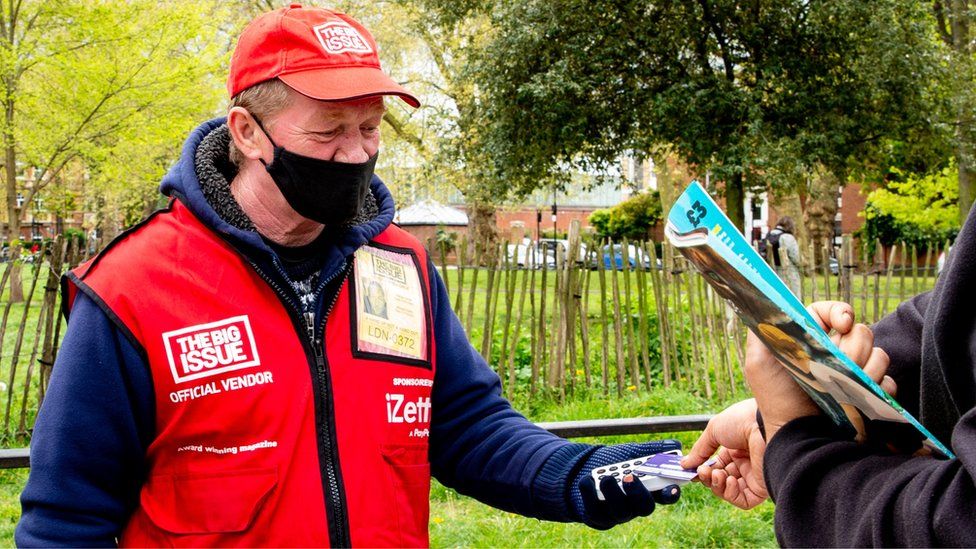The downward spiral in Stephen’s life began when his wife of 16 years left. The father-of-four admits he could not cope.
There were twists of mental anguish, then financial ones. The 49-year-old says he was forcibly removed from his home after falling behind on rent and bills.
When he hit rock bottom, he was living alone in a two-man tent on the Trans Pennine Trail and spending time in a bus station to stay warm. He relied on churches, charities, and good samaritans for food.
Now, he is dragging himself back up from those depths.
He was found somewhere more suitable to live during the pandemic, and has recently applied for permanent council tenancy.
There has been one big barrier to living independently in adequate accommodation – he had no bank account.
He had no documents to enable him to open an account – no paperwork or identification of any kind.
He was helped by a link between the council and HSBC. For the last 18 months, the High Street bank has provided access to a basic bank account – which does not allow credit – to people like Stephen without a photo ID or proof of their address.
Instead, a charity or council caseworker verifies their identity. A total of 1,144 accounts have been opened under the scheme.
Maxine Pritchard, head of financial inclusion at HSBC UK, says that the pandemic has made the problem of homelessness even more acute.

“Without a bank account it’s extremely difficult to claim benefits, rent accommodation or receive wages, which means people who are homeless can become trapped in their current situation. That just simply isn’t fair,” says Ms Pritchard.
Stephen says it is making a difference to his life. “It means so much for me,” he says.
“It helps to build the life skills I’ve lost over time.”
He says that being able to set up a direct debit is vital for getting on top of bills.
After relying on the generosity of others, he can now manage the basics such as food shopping in the supermarket. This is something, he says, which made him anxious at first, but is another step towards a better life.
The scheme is not the only one supporting homeless people in setting up bank accounts.
Last month, the BBC reported on a small pilot project led by social enterprise Proxy Address in conjunction with Lewisham Council.
It is giving 20 homeless people access to a virtual address they can use to apply for services. If all goes to plan, the hope is that the scheme will be extended.
Hundreds of others have been assisted by the Big Issue Group, partly in order to process contactless payments when selling the magazine.

Many have been given Zettle card readers to accept contactless payments from shoppers on the street who increasingly find themselves with only a card, rather than coins, in their wallet.
One of those to use the card reader, and who benefitted from a new bank account, is Dave.
The 59-year-old, who sells the Big Issue in London, says: “It definitely helped my sales. And because of the pandemic, card sales increased a lot.
“I call it Covid reasons – people shop less regular, they shop online, or are just afraid to come out. You get a lot of people who don’t engage any more, withdraw into themselves.”
Beth Thomas, from The Big Issue, says the pandemic has accelerated its programme of ensuring vendors can accept cards as well as cash. About 30% of Big Issue sellers are now cashless.
As more and more of them gain access to money in a bank account, it may see them take one of many steps needed towards a more hopeful future.
Source: BBC

